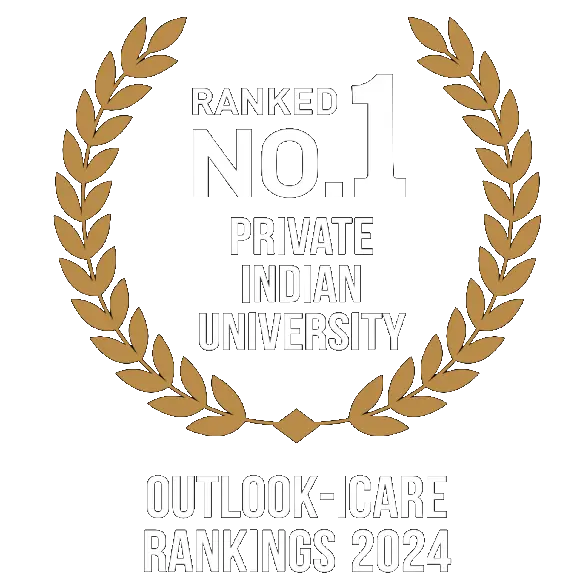Greetings and welcome to the Jindal Institute of Behavioural Sciences (JIBS), an eminent institute of knowledge and innovation situated within the distinguished academic milieu of JGU. As a research institute grounded in values and proudly affiliated with the Academic Council on the United Nations System (ACUNS), JIBS is fervently dedicated to conducting multi-disciplinary and empirical research in the realm of behavioural science.
We harness the expertise of our internationally acclaimed faculty and embrace an innovative interdisciplinary curriculum to foster cutting-edge research at the intersection of various disciplines including psychology, criminology, forensic sciences, and law. Our students and scholars enjoy the advantages of a robust culture of interdisciplinary research, hands-on practical exposure, and experiential learning. The ethos of our teaching and learning is marked by a resolute commitment to pushing the boundaries of excellence, particularly in the dynamic interface of psychology, rehabilitation, and allied behavioural science disciplines. I invite you to join us on this exciting journey of exploration and academic advancement at JIBS.
Students
University Faculty & Staff
Collaborations with International Universities
Alumni Network
Publications



















Psychology is more than a subject. It is the study of what makes us emotional humans. From feelings to choices, from childhood experiences to adult behaviour, psychology helps us understand how people think, feel and respond. For students who are passionate about understanding others, a Master’s in Psychology offers not only academic growth but also meaningful career direction. At Jindal Institute of Behavioural Sciences, psychology is experienced, applied and explored in everyday life.
Psychology explores the relationship between the mind and behaviour. It is best for aspirants looking to decode the psychological facts about human behaviour. It helps us answer questions like:
Whether you pursue a Master of Science in Applied Psychology or a Master of Arts in Applied Psychology, you will engage with real-life challenges and discover how psychology influences individuals, communities and societies. You will get to choose from various applied psychology programs like child psychology master’s programs, and many more.
The study of psychology includes learning how people behave, think, and change over time. You will explore topics such as:
Students interested in the intersection of law and mental health often opt for forensic psychology courses. In particular, forensic psychology courses in India prepare graduates for work in correctional settings, legal consultancy, and behavioural assessments.
Psychology can be divided into several types. Here are four of the most commonly studied:
These areas often form the foundation of masters in psychology courses and introduce students to further specialisations.
As you progress in your studies, you may choose from several psychology branches that align with specific career paths:
Students searching for Masters in Applied Psychology, child development programs, or forensic psychology courses in India will find pathways into each of these specialisations through advanced study.
Yes, psychology offers a rewarding career for those who want to make a difference. Trained psychologists are increasingly needed in:
Choosing the right programme depends on your goals.
Each pathway offers a unique blend of theoretical knowledge and practical training.
A Master’s in Psychology takes two academic years to complete at JIBS. This applies to most masters in psychology courses offered across India, including:
During the course, students undertake coursework, complete internships, and conduct independent research, culminating in a final dissertation.
You do not need to clear the National Eligibility cum Entrance Test to pursue psychology. The top universities offering Masters in psychology consider:
For those seeking Masters in Applied Psychology colleges in India, these requirements ensure that candidates with true interest and dedication can join the field, regardless of their science or arts background.
Students who complete their twelfth standard can begin with a Bachelor’s degree in Psychology. This foundation includes subjects such as behavioural theories, human development, and basic research methods.
After completing a Bachelor’s, students can apply to advanced programmes like:
Choosing JIBS as one of the best psychology universities in India is ideal for students who want to make a mark in their careers.
Some students thrive in therapy-based settings. Others prefer working in law enforcement, corporate environments, or research. Based on your passion, you might choose:
These options are available under M.A./M.Sc. psychology courses at JIBS.
The best Master’s programme aligns with your personal goals and provides a solid balance of theory, application, and ethical practice. While many students look for rankings and names, what truly matters is how well the course prepares you for the real world.
Whether you are exploring child development, enrolling in forensic psychology courses, or researching applied psychology courses, a strong Master’s programme will help you grow professionally and personally.